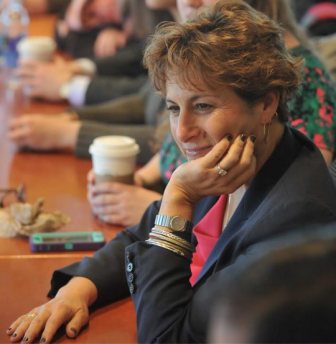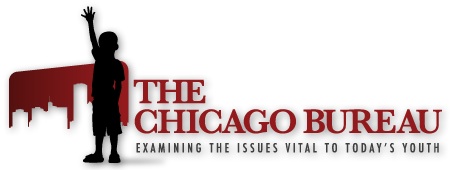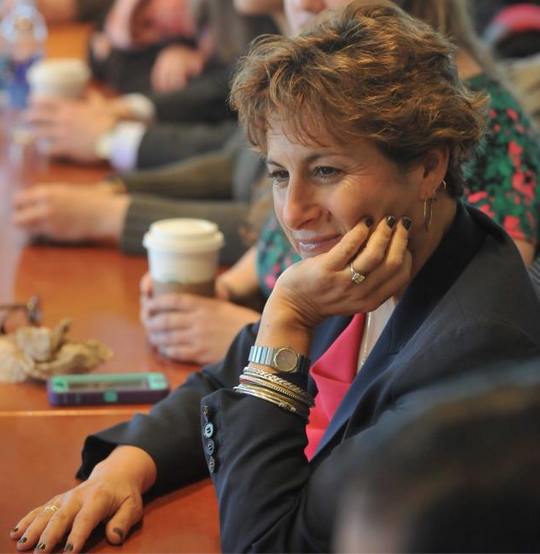CHICAGO — In 2007, Northwestern University Law School’s Children and Family Justice Center and the National Juvenile Defender Center collaborated to identify key issues in Illinois with juvenile access to counsel and representation in proceedings.
Seven years later, it is still unclear whether the state has found solutions to any of those problems. Rather, Illinois has found itself riddled with additional challenges as its juvenile prisons came under fire for numerous reports of sexual assault.

Julie Biehl"
“I think it’s hard to bring [this study] up to date because I don’t know that anyone’s followed up,” said Julie Biehl, director at the Children and Family Justice Center.
The report’s major findings included untimely appointment of counsel and pressure for children to plea guilty without complete understanding of the consequences. Many of the issues correlated with the volume of cases despite inadequate number of public defenders available for them.
“Public defender offices are always underresourced,” said Anne Helms, pro bono counsel with law firm DLA Piper. “There are people out there every day doing amazing work. Unfortunately, after a while, it almost becomes routine and you operate with the expectation that the person is guilty.”
Helms said this is a problem that extends beyond overworking public defenders. Due to time constraints, defenders don’t even have the chance to meet their clients before appearing before the judge. The judge, on the other hand, is also forced to make “split second decisions” given the high caseload.
As a result, lawyers cannot best represent the youth’s interest, which means the judges do not have that information on which to base their ruling.
 “There are high school kids that come through who need to finish exams to graduate, or enroll in college, but the judge gets none of that information,” she said. “The kids don’t get another chance to reargue. By the time they’re out, or get to the next hearing, they can already be so behind in school they have to repeat a year.”
“There are high school kids that come through who need to finish exams to graduate, or enroll in college, but the judge gets none of that information,” she said. “The kids don’t get another chance to reargue. By the time they’re out, or get to the next hearing, they can already be so behind in school they have to repeat a year.”
Moreover, youth are still unable to have weekend detention hearings in Cook County, a policy afforded to adults, Biehl said. This means if juveniles are detained before the weekend, their first hearing comes after more than the standard 24 hours. They would also have to miss time in school to attend the hearing.
“It’s so important that kids are schooled of the importance between being tried as adults and tried as juveniles,” she said.
This is not the only time that juveniles experience greater negative impact in the justice system than adults. Because lawyers and administrators alike sometimes adopt the attitude that they “know best” for children, it is not the child’s expressed interest that is represented, but rather, what the adults believe to be in the child’s interest.
“There’s an instinct as an adult, ‘well I don’t care what you want, this is what’s best for you,’” Helms said. “But when you take on the representation of a child, your role has to be different. This is juvenile justice 101. You’re supposed to fight for what your client wants.”
Yet, lack of resources means children aren’t even informed of their choices, Biehl said. The fact that youth have the right to petition to get off the sex offender registry but need an attorney to do so is an egregious access to counsel issue. Helms said juveniles also are unaware of how to navigate the record expungement process, which is critical in helping youth exit the system.
However, the problem continues well beyond what should be the extent of juvenile justice, said Elizabeth Clarke, founder of the Juvenile Justice Initiative just north of Chicago.
“A year ago, there was a bill that said kids can’t be on parole or aftercare for longer than an adult would,” she said. “Yet, kids are given a list of conditions that they have to do on parole, but aren’t told when they’ll be done. We still have people saying ‘we gotta keep the kid on parole longer.’ Fundamentally, the process should say, this is how long you have, if you comply, you finish.”
Clarke said everything boiled down to lack of due process and transparency, both of which should be solved with a different model.
For example, she pointed to talks of creating an ombudsman position to better hear grievances of youth in the system as a way to alleviate the transparency issue, but said it won’t solve the problem.
“Fundamentally, we have the wrong model here,” she said. “The states that have the right model have facilities that aren’t prisons, but are community homes. When all you have are prisons, a bulk of the resources are burned out on the staff and not on in-community alternatives for the kids.”
This story was produced by the Chicago Bureau.

